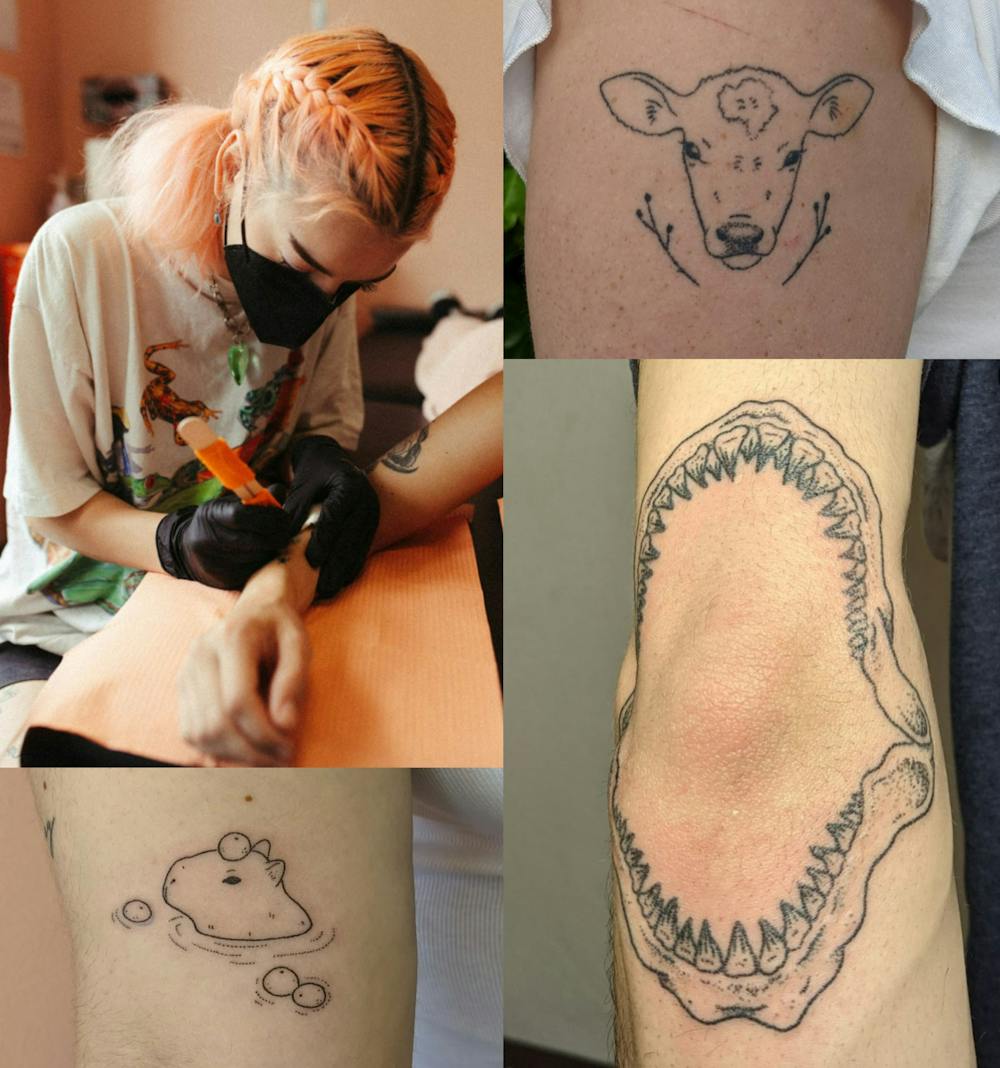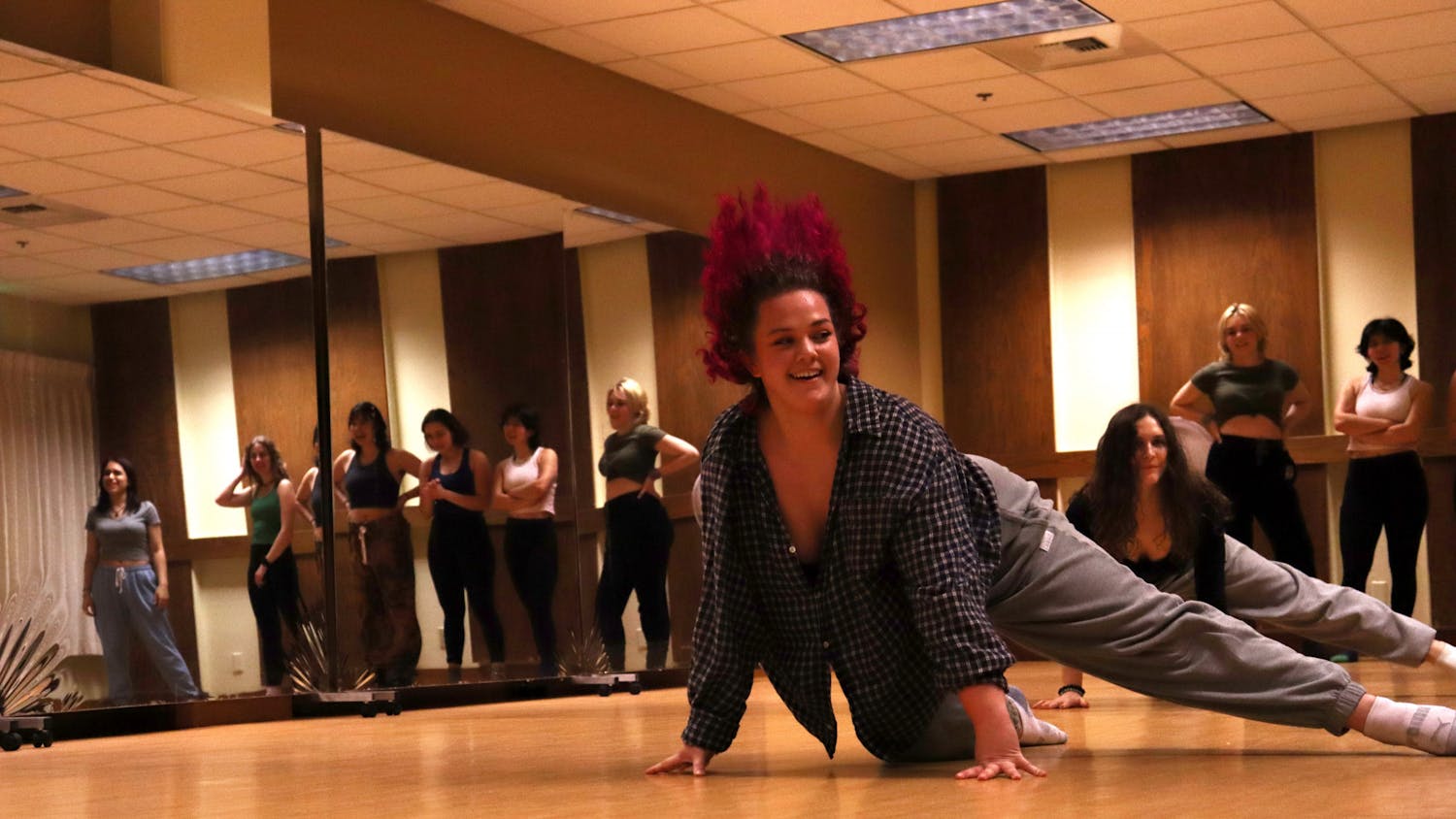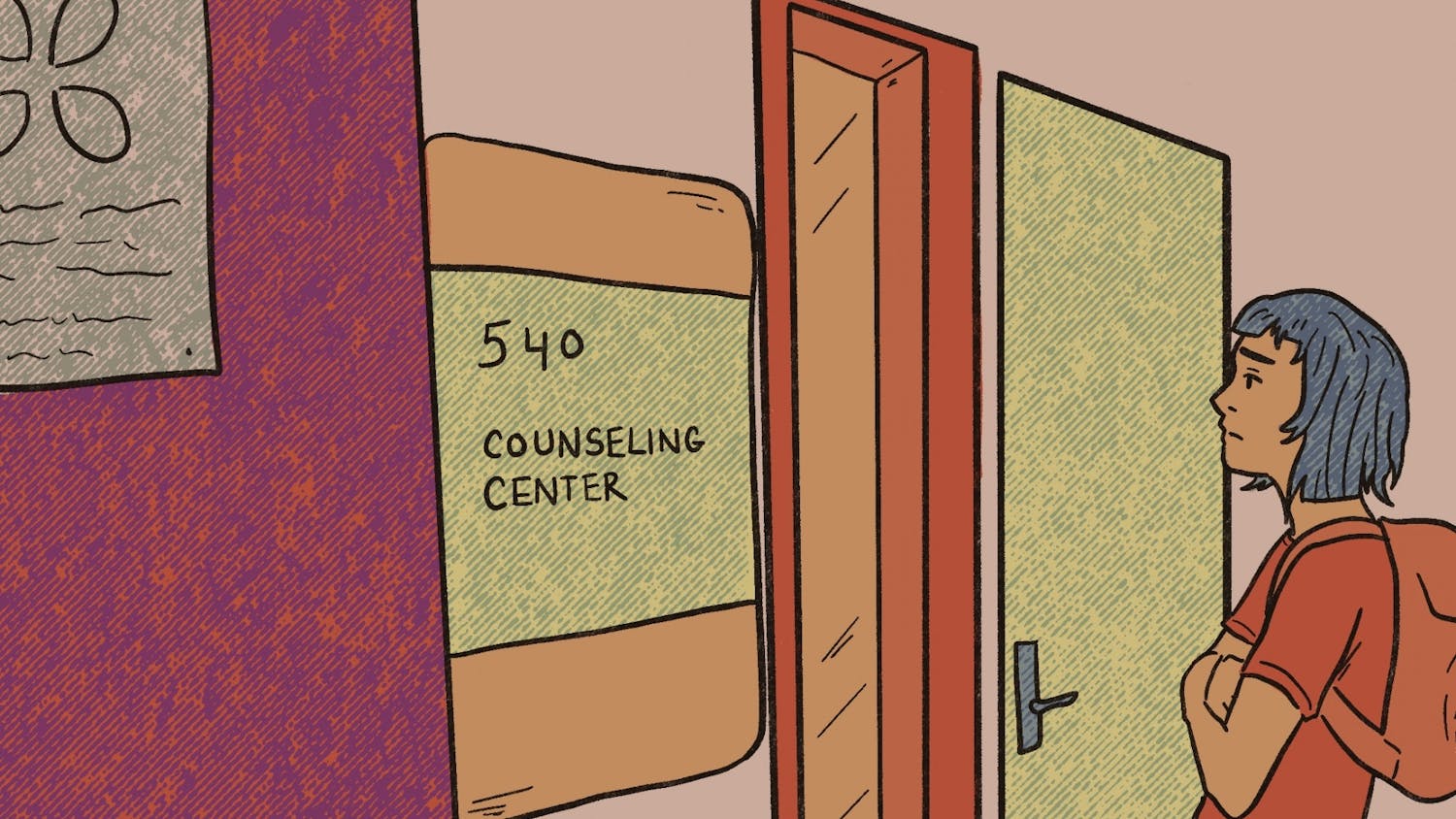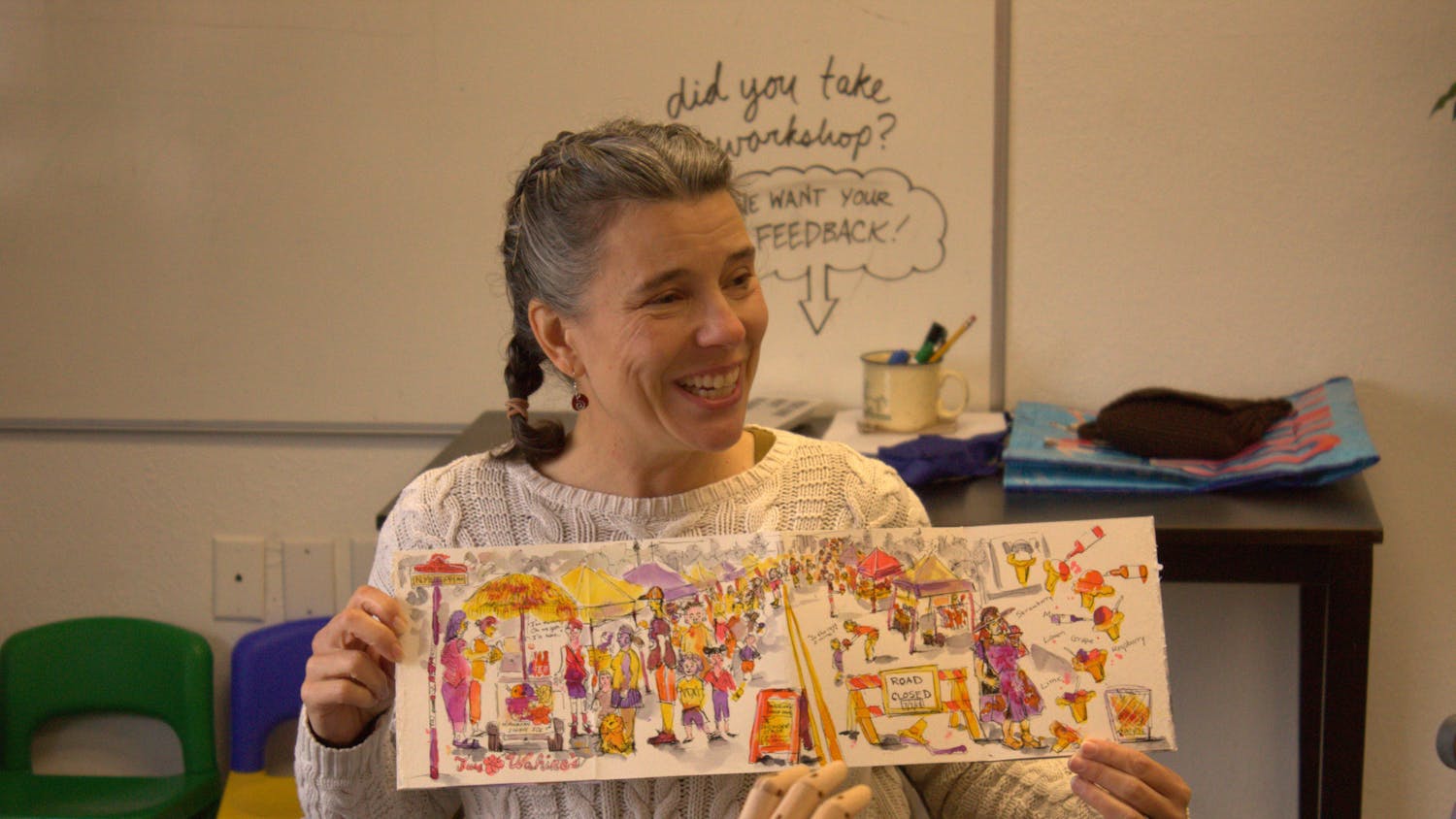Bellingham is starting to see a new wave of tattoo artists arrive as this generation moves toward a not-so-traditional tattoo experience — which might be exactly what is needed in the tattoo industry today.
“The industry has been predominantly run by cis, white men, and it's typically not focused on client comfort,” said Tiger Varah, a self-taught stick and poke tattoo artist and private studio co-owner in Bellingham. “I think it’s becoming a lot more saturated. As an artist, you should be wanting to bring more to the table than just trying to make money.”
The term cis, or cisgender, refers to people whose gender identity matches the one they were assigned at birth.
Many local tattooists in Bellingham are starting to bring awareness to shifting values and beliefs away from the traditional shop-talk way of doing things, and more toward an inclusive, respectful and consent-based experience for both the client and the artist.
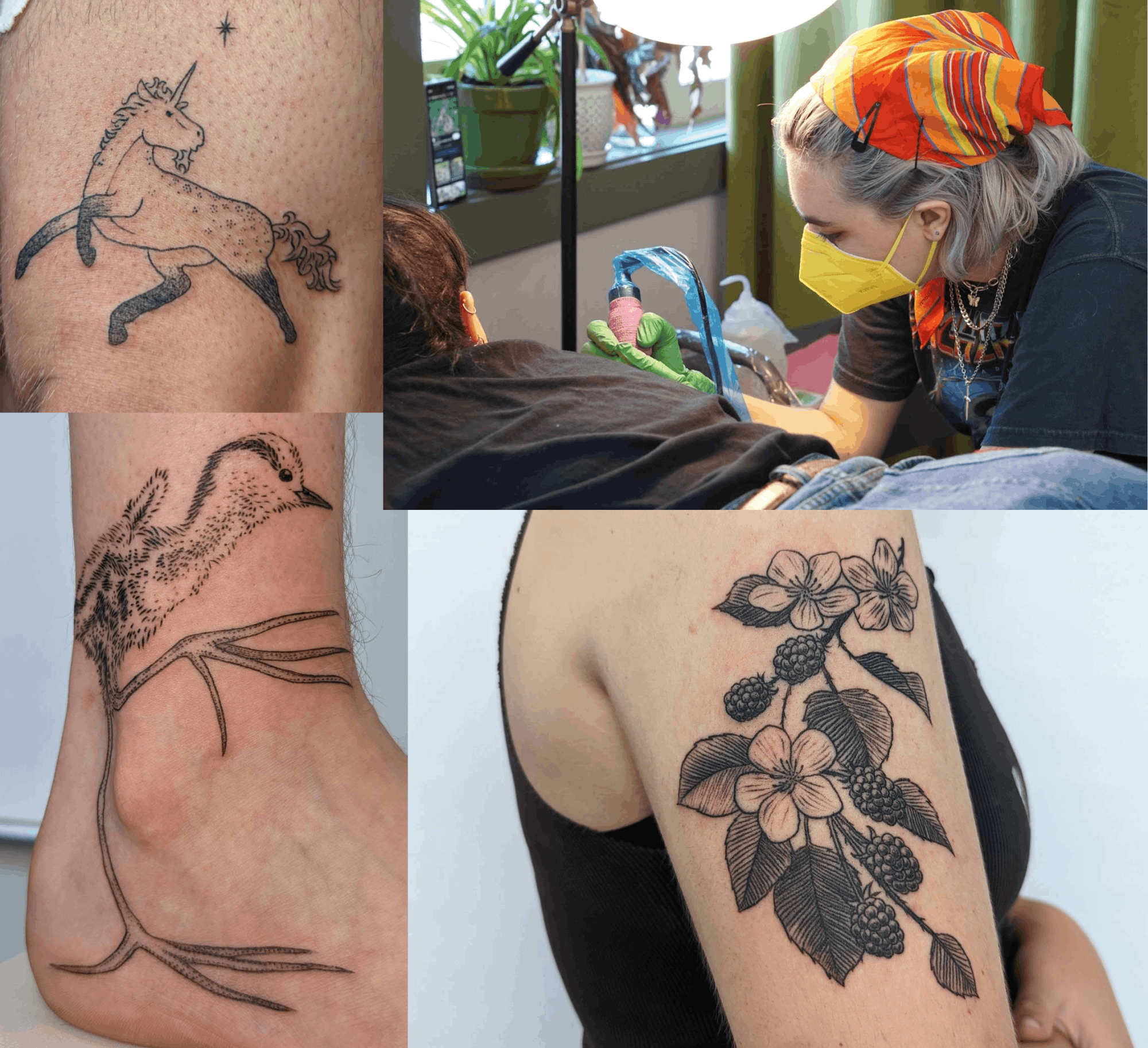
Rachel Rothberg (they/them) tattooing a client in their studio on July 22, 2022. Also pictured is some of their work including a unicorn from their flash (top left), a baby northern jacana (bottom left) and a blackberry plant from their flash (bottom right). // Photos provided by Rachel Rothberg, photo of Rothberg taken by Steph Cheng (she/they)
“Continued consent really is the biggest thing,” said Rachel Rothberg, a local self-taught tattoo artist and owner of private tattoo studio Curlew Tattoo.
“I utilize a consent form with all my clients,” Rothberg said. “It's mainly an acknowledgment that their body and beliefs are valued in my workspace, and they can renounce their consent verbally at any point throughout our time together."
Tattooing is an art form that can lead to intimate situations. Making space for boundaries and respect is one of the main focuses many new artists are trying to bring into the Bellingham tattooing community.
"I've heard so many tattoo horror stories,” said Kamile Jordan, a locally trained tattooist and co-owner of With Love private tattoo studio in Bellingham. “People have told me their first tattoo experience kind of ruined it for them, and that's a really huge bummer. It should never be that way."
Many upcoming artists in the area have a deep-rooted understanding of the pressures that can come with getting tattooed.
"I was getting tattooed a bunch in 2015. I identify as a trans, nonbinary person,” said Sayr, co-owner of private studio Blood Honey Tattoo in Bellingham. “Finding tattooers who were queer, trans and could understand why I needed tattoos to feel comfier in my lived experience, in my skin, was really hard to do in Bellingham at the time.”
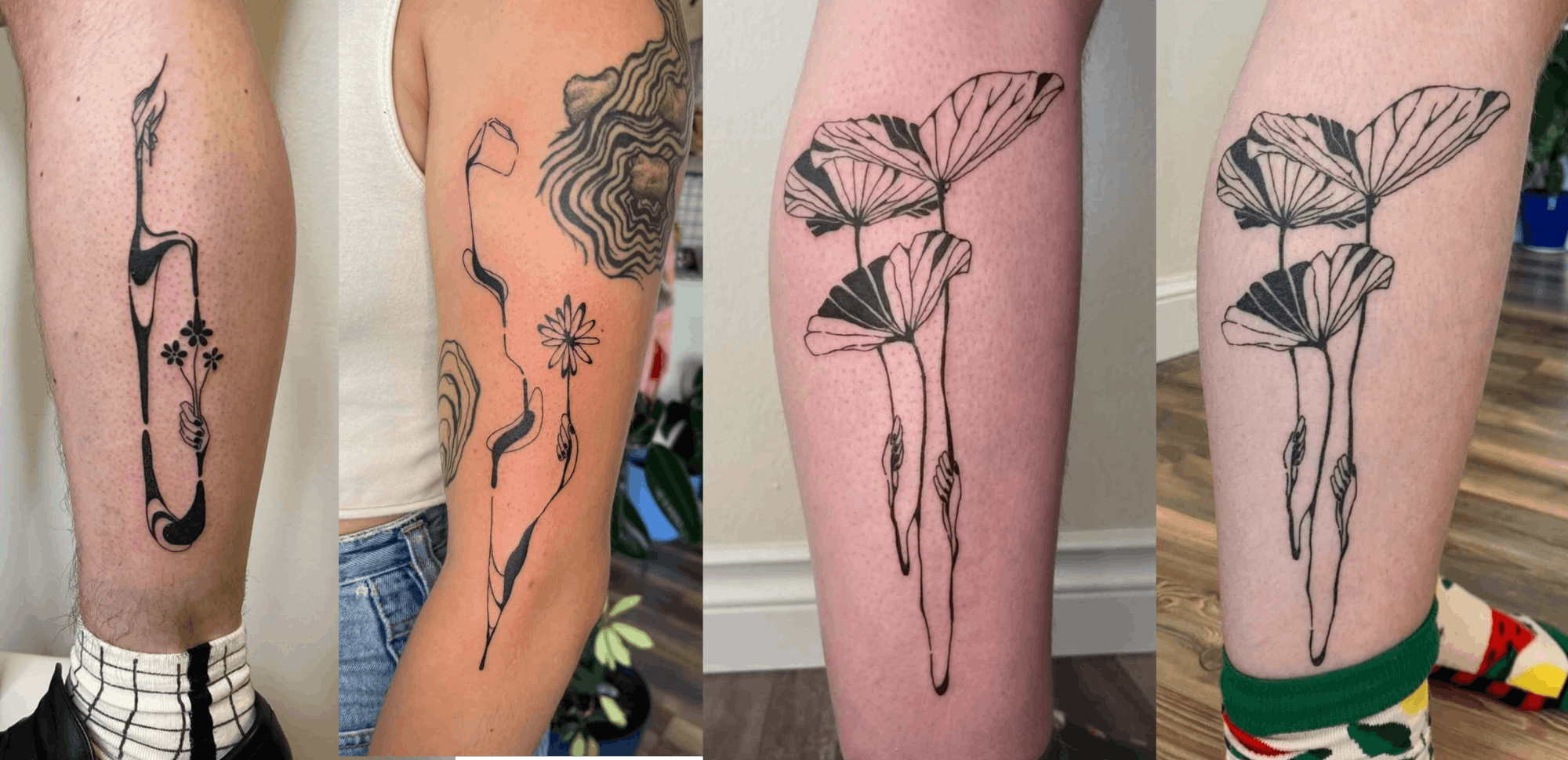
A collection of Sayr’s (they/them) work, including a comparison of a freshly done tattoo (pictured right middle) and a picture of the healed piece (pictured right). Sayr believes healed photos are the most important part of a tattooist's portfolio when looking at an artist's Instagram // Photos provided and taken by Sayr
Nonbinary is an umbrella term for gender identities other than men and women, as well as a term for a specific gender identity depending on the person.
Through their own practices and involvement in the tattoo world, many artists are trying to spread awareness of the rights clients have when getting body modification work done.
“You can stop your appointment at any time if you feel you need to,” Sayr said. “If it's not feeling right, or you don't want to do it anymore, just go. Have your friend get you, go get some soup, and just leave your appointment; it's OK.”
For many clients, tattooing is something that can mean putting themselves into uncomfortable situations, which is something this new generation of artists is trying to change daily.
"There's so much to be said for creating a comfortable safe space that is welcoming to everyone,” Varah said. “They’ll remember that experience forever because that piece of art is on them forever. You have to respect that person's choice to be vulnerable with you as their artist."
Not only are artists spreading awareness for continued consent and comfort, but they are also trying to make space for minority groups in the community as well.
“Any upcoming marginalized community of artists will inherently be written off. Sometimes I find I write myself off, too, as a nonbinary tattoo artist,” Rothberg said. “It's wonderful to see this new energy of consent-oriented and trauma-informed tattooing that this new wave of tattooers has to offer. Maybe it's because a lot of new artists in the community are queer, with a lot less cis, white men energy, which makes it feel a bit safer and accepting.”
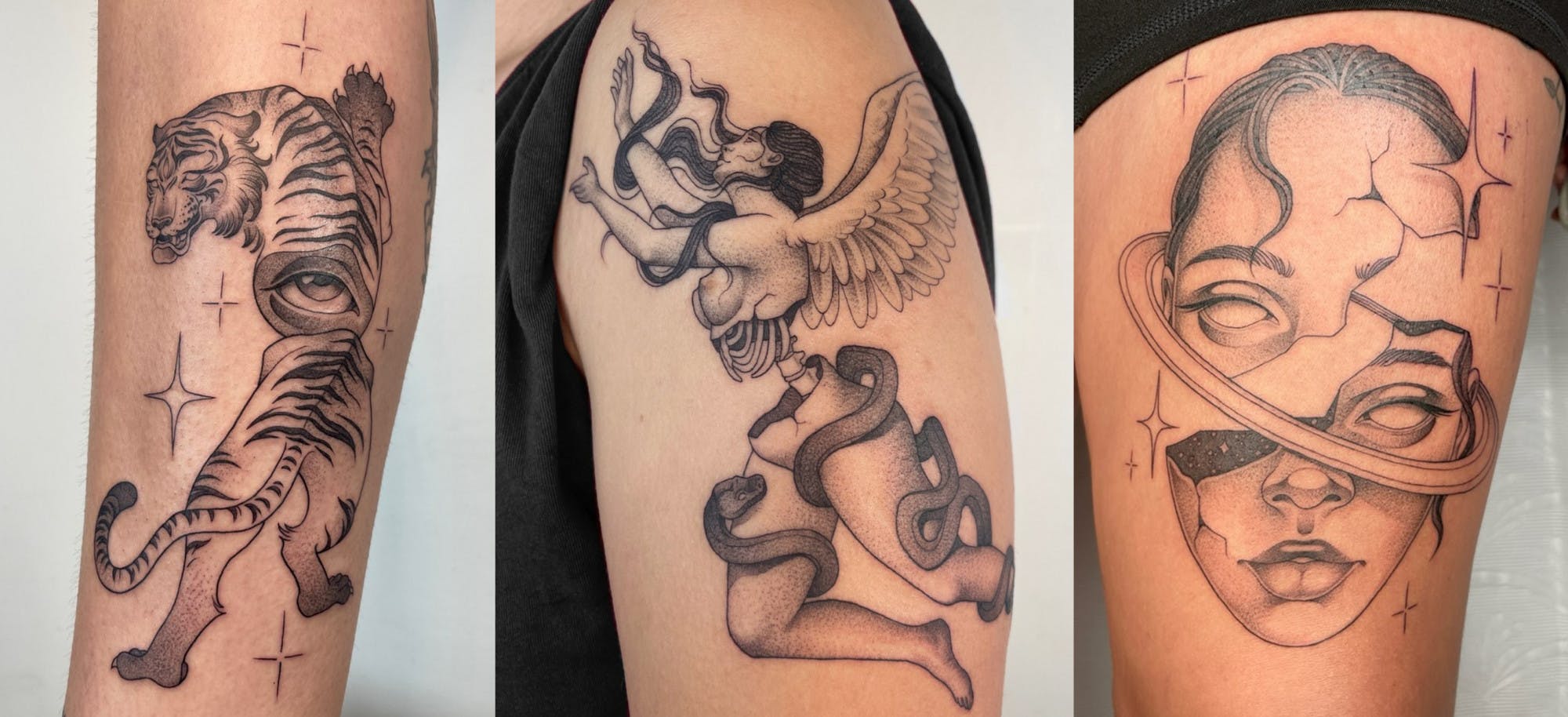
A collection of Kamile Jordan’s (she/her) work, including a tiger thigh piece done at With Love, Tattoo studio (pictured left), a flash piece done at Le Papillon Studio for a guest session (pictured center) and a women’s face portrait (pictured right) also done at With Love, Tattoo studio. // Photos provided and taken by Kamile Jordan
This shift within the industry is reflected in the broader acceptance of women, people of color, indigenous groups and anybody within the LGBTQ+ community who have been left out of the tattoo circle for years.
“I think it's definitely evolving for the better. It's evolving in the direction that I want to see it going in,” Jordan said. “That being said, I think we have a lot of growing left to do.”
Many artists within the community have found Instagram to be a way to show off their work, but also utilize it as a platform to connect with artists around the world. Many of those artists are challenging the norms of traditional tattooing when it comes to who can be a tattoo artist and how tattooing can be done.
“The birth of social media as a whole has progressed tattooing to becoming more accepted,” Jordan said. “Now we can connect with artists on the other side of the country, even the other side of the world, and learn from each other through this one platform, which the tattoo world has never experienced before.”
With the emergence of new artists who are challenging the typical standards, they are also creating a major shift in how to become a trained tattooist.
Shifting away from apprenticeships and moving towards a more community-focused, self-taught industry has helped a lot of new artists grow within their practice.
“I would say the other queer DIY tattooers in Bellingham make me feel super supported,” Sayr said. “And I think that can be said for the queer tattooing industry in Seattle, Portland, Chicago, New York, definitely not just Bellingham. Lots of artists all over who have supported me through some really dark instances in this industry, too. It goes really deep. The queer self-taught tattooing community is strong.”
This new way to connect has created the potential for many artists to network and develop their skills, but it also provides the client with a whole new way to find an artist they can feel comfortable with.
“I follow a lot of queer tattoo artists on Instagram who are in Bellingham,” said Sky DeGiulio, a returning client of Tiger Varah’s. “There’s a reason I drive up to Bellingham to get tattooed within that community.”
With the help of social media creating a space for artists to share their portfolios, identities and values with the public, and a growing awareness of what standards a client should look for, the norms for what to expect from getting tattooed are changing.
“I think that people are finally starting to reflect on their physical appearance and what the meaning of ‘self’ is, whatever form it may be,” Rothberg said. “If tattooing wasn't big before, it's huge now."


